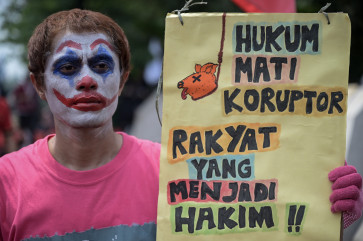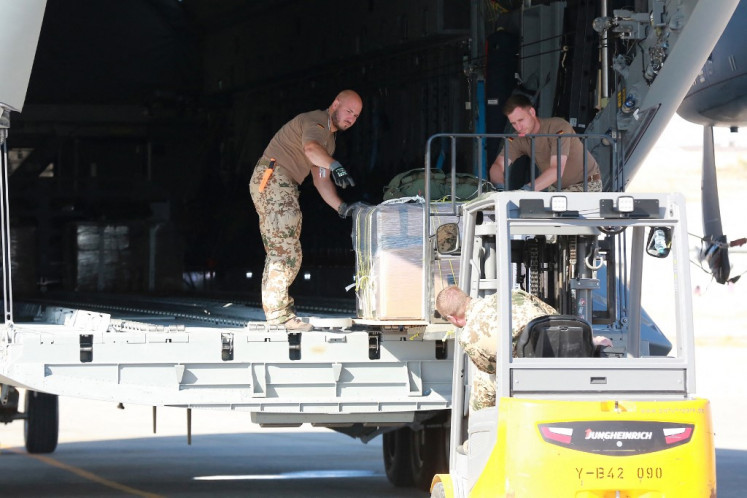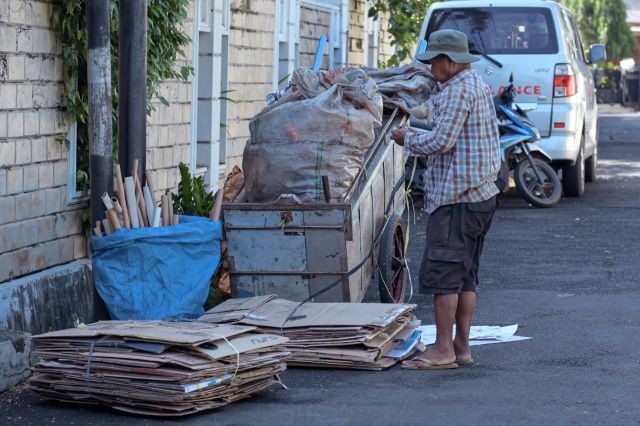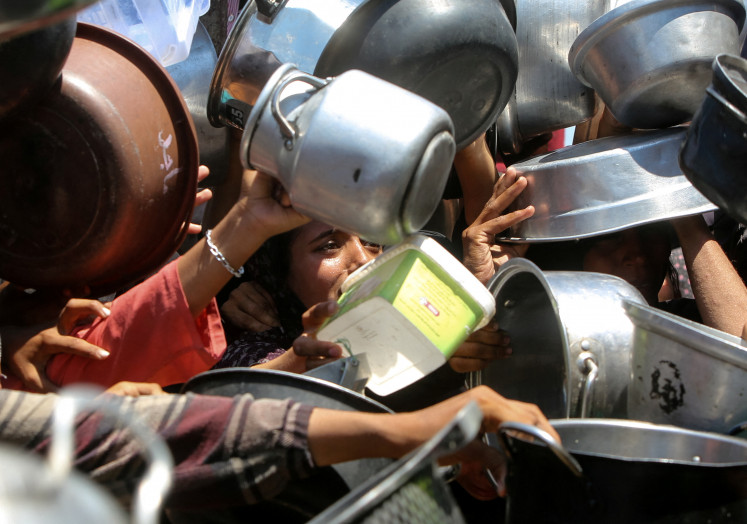Popular Reads
Top Results
Can't find what you're looking for?
View all search resultsPopular Reads
Top Results
Can't find what you're looking for?
View all search resultsUsing IT technology to help address societal issues
The Jakarta Post’s Ken Destino was invited to take part in the Microsoft Accelerating Asia Pacific Summit held Dec
Change text size
Gift Premium Articles
to Anyone
T
he Jakarta Post’s Ken Destino was invited to take part in the Microsoft Accelerating Asia Pacific Summit held Dec. 6 and 7 in Kuala Lumpur. Below is his report of the event.
About 130 leaders from the technology industry, government and NGOs took part in the annual Microsoft Accelerating Asia Pacific Summit event to discuss how to closely collaborate on deepening the role of technology in youth development, education, health, job creation, entrepreneurship, urban planning and disaster management.
Microsoft‘s general manager of citizenship and public affairs, Lori Forte Harnick, said the gathering was aimed at showcasing how technology can accelerate economic and social changes in Asia.
“It’s a wonderful chance to think about all of the different pieces of the company and its partners — non-profit and business partners — and how together we can spur technology adoption for economic growth. As the region is so rich in opportunity and has such a wonderful record thus far in terms of seizing those opportunities, it has made a lot of sense to think about it from the regional perspective and bring everyone here together,” said Harnick.
Chrisma Albandjar, Microsoft Indonesia’s director of corporate affairs, said during the meeting that Microsoft had collaborated with various organizations in Indonesia to effectively use IT technology to bring positive change to the people. “As a part of Indonesia, we work to accelerate the country towards its full potential by advancing economic, social and environmental progress. We believe in innovation and technology as our main tools and only by working together will we achieve the vision of Indonesia to become a knowledge-based society,” said Chrisma.
Sharing the government’s goal of closing the digital gap and providing communities with new skills that will help people increase their competitiveness, income, create jobs and stimulate local economies, a number of dedicated non-profit organizations were established at around 120 Community Technology Centers, or CTCs, across Indonesia. These CTCs provide communities the necessary training and knowledge and have benefited over 2,705,500 people.
In addition to CTCs, the Yayasan Cinta Anak Bangsa foundation, led by Veronica Colondam, has built Rumah Belajar, or House of Learning, for teenage dropouts. “We believe that the youths have huge potential, especially given they are the ones who will lead the country in the future. Through Rumah Belajar, they learn how to work in the 21st century era and add value to their lives. By working together, I believe a brighter future is just around the corner”, stated Colondam.
In education, the forum focused on the role of teachers as agents of change. Therefore, investment in the teachers has been a focus of the Microsoft Citizenship program. Since 2008, Microsoft Indonesia has expanded the power of education through the Partners in Learning initiatives program with a total investment of more than US$2.3 million, reaching over 290,000 teachers, impacting 14.9 million students and helping schools gain better access to technology.
In response to philanthropic activities, Harnick added that Microsoft was focused on supporting youth around the world by providing technology access and training. With technology training, the skills they gain create opportunities for young people to imagine and think more clearly about what they may do with the technology. Such encouragement is intended to help them realize their goals by opening connections to potential jobs, for example, and for matching students with business opportunities that are best suited for both sides. By provision of free software, many young participants may even go on to start their own businesses.
“The philanthropy comes in a number of ways; one is how we donate software and funds to non-profits around the world. The amount of donations in Asia has totalled $275 million since we began. In addition, we also provide software to non-profits so they can operate their activities more efficiently and do a better job in serving the youth,” she added.
On the second day of the conference, participants were invited for a trip to the Science of Life Studies (SOLS) 24/7 community center in Segambut on the outskirts of Kuala Lumpur. The center provides non-formal education and life-skills education and training of underprivileged youth to acquire useful skills while encouraging the principles of being responsible, dynamic, disciplined and socially conscious. SOLS 24/7 Country Director Raj Ridvan Singh said his center teaches English, computing, mathematics, leadership and character skills to both full time boarding students and part time day students.
It works together with partners and sponsors, which includes the Malaysian Ministry of Human
Resources Department of Skills Development.










